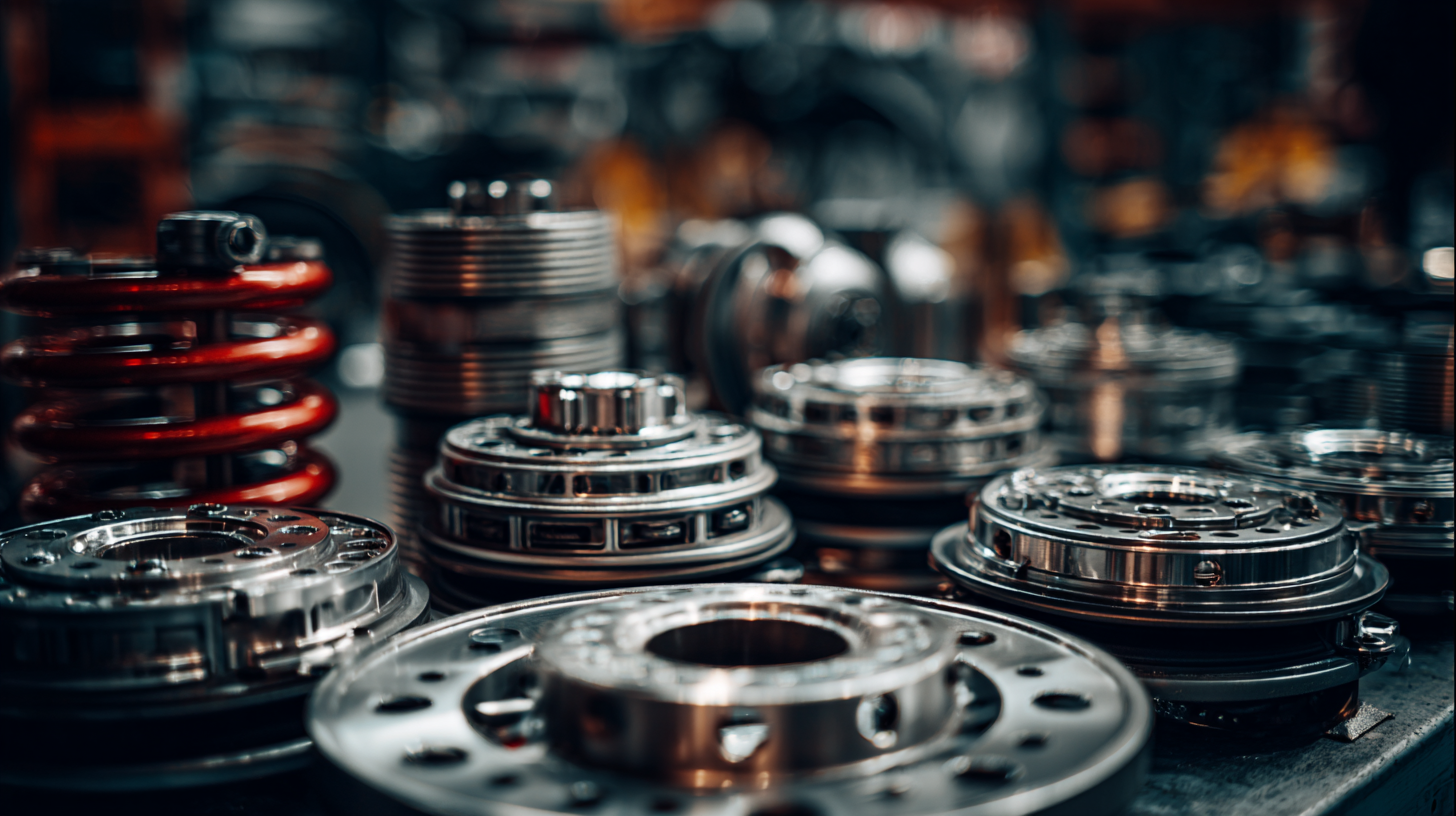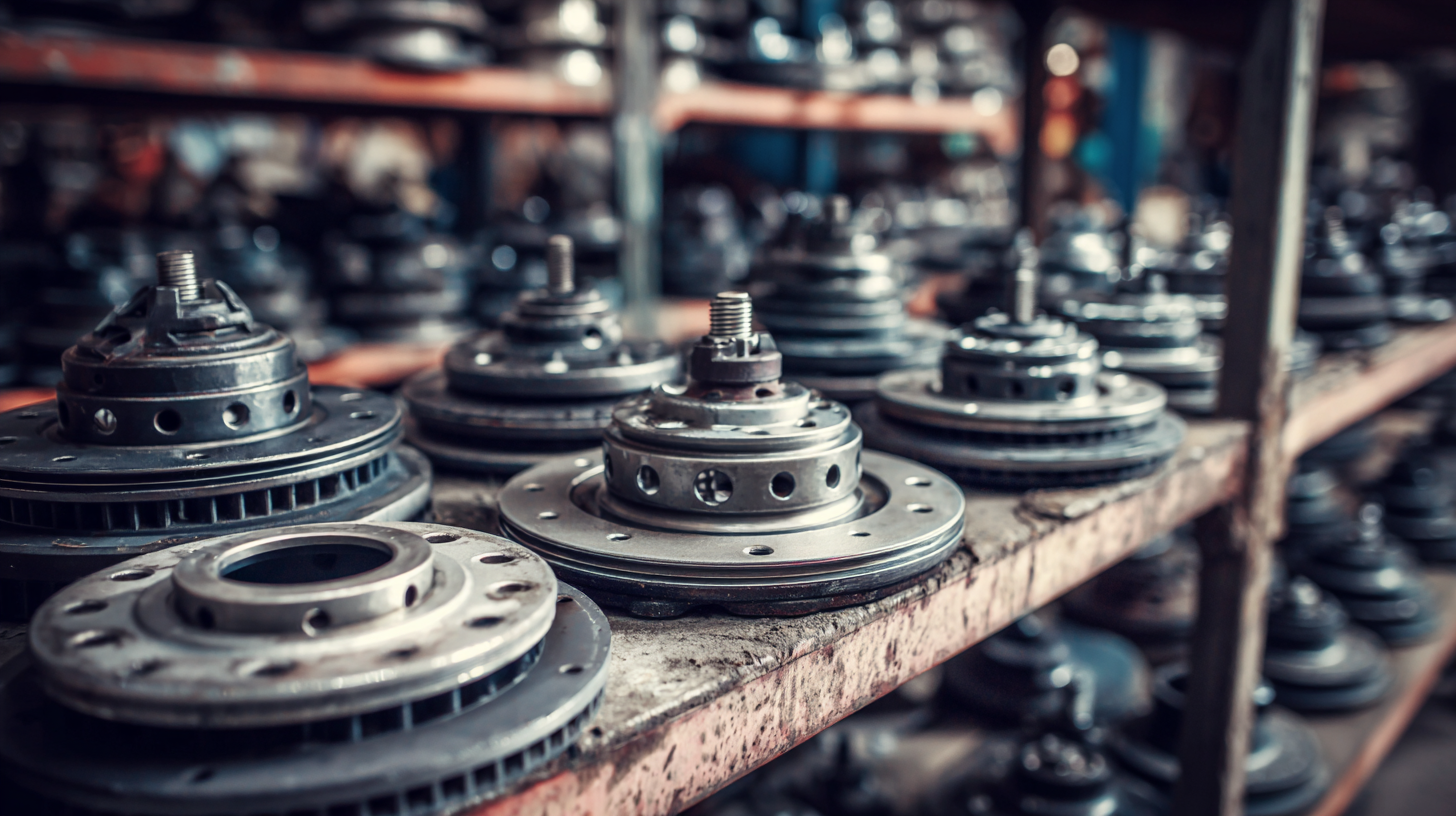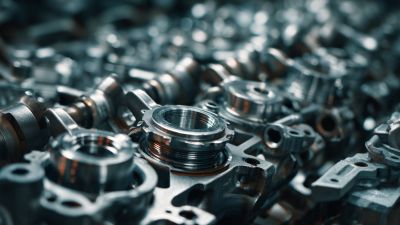Blog
The Ultimate Guide to Choosing Quality Car Auto Parts for Your Vehicle's Long Life
When it comes to maintaining the longevity and performance of your vehicle, the significance of choosing high-quality car auto parts cannot be overstated. According to the Automotive Aftermarket Industry Association (AAIA), the U.S. automotive aftermarket is projected to reach over $400 billion by 2025, indicating a growing awareness among consumers about the importance of quality in auto parts. A recent study by Research and Markets highlights that approximately 50% of vehicle owners are now investing in OEM (Original Equipment Manufacturer) parts to ensure optimal performance, resulting in increased vehicle lifespans. Additionally, a report from the Specialty Equipment Market Association (SEMA) emphasizes that using quality auto parts can lead to an increase in vehicle reliability, with a significant reduction in maintenance costs over time. Thus, making informed decisions when selecting car auto parts is essential not only for immediate repairs but also for extending the overall life of your vehicle.

Identifying Genuine Auto Parts: Key Characteristics to Look For
When it comes to maintaining your vehicle’s long life, identifying genuine auto parts is crucial. According to a 2022 report by the Automotive Parts Association, nearly 40% of consumers unknowingly purchase counterfeit automotive parts, which can lead to safety issues and costly repairs. Genuine parts are typically manufactured to meet stringent safety and performance standards, ensuring optimal functionality. Look for parts that have clear certification marks and traceability features, such as a unique serial number or a QR code that verifies authenticity.

Additionally, assessing the materials used can provide insight into the quality of the auto part. For instance, high-grade materials, such as reinforced steel or OEM-spec plastics, are indicators of durability and performance. A study from the Institute for Automotive Quality revealed that vehicles equipped with genuine parts saw a 25% decrease in maintenance issues over a five-year period compared to those with aftermarket parts. When evaluating auto parts, always prioritize thorough research and seek out trusted suppliers to guarantee that you're making a smart investment in your vehicle’s longevity.
Understanding the Importance of OEM vs. Aftermarket Parts
When it comes to maintaining your vehicle's longevity, understanding the difference between OEM (Original Equipment Manufacturer) and aftermarket parts is essential. OEM parts are produced by the same manufacturer that made the original components for your vehicle. They ensure a perfect fit and maintain the quality originally intended by the car manufacturer. Using OEM parts often means better compatibility, which can lead to improved performance and potentially higher resale value.
On the other hand, aftermarket parts are made by third-party companies. While they can be more affordable and offer a wider variety, the quality can vary significantly. Some aftermarket components may perform just as well as their OEM counterparts, but others might not meet the same standards, potentially leading to issues down the line. It's crucial for vehicle owners to carefully weigh the pros and cons of each option. Buying high-quality aftermarket parts from reputable manufacturers can sometimes be a viable choice, but for critical components, sticking with OEM might be the safer bet to ensure your vehicle runs smoothly for years to come.
The Ultimate Guide to Choosing Quality Car Auto Parts for Your Vehicle's Long Life
| Part Type | OEM Quality | Aftermarket Quality | Average Lifespan (Years) | Typical Warranty |
|---|---|---|---|---|
| Brake Pads | High Quality | Variable Quality | 3-5 | 1-3 Years |
| Engine Oil Filter | Reliable | Often Inconsistent | 1-2 | 1 Year |
| Alternator | Superior | Good | 7-10 | 2-3 Years |
| Spark Plugs | High Performance | Quality Varies | 2-5 | 1-2 Years |
| Timing Belt | Excellent | Often Inferior | 6-10 | 2-5 Years |
Tips for Evaluating Quality in Auto Parts Retailers
When it comes to ensuring the longevity of your vehicle, selecting quality auto parts from reliable retailers is paramount. According to a report from the Automotive Aftermarket Suppliers Association (AASA), the aftermarket sector is projected to grow to over $400 billion by 2025, reflecting the enormous demand for high-quality parts. To navigate this crowded market, it’s essential to evaluate auto parts retailers on several key factors.
First, check if the retailer provides detailed product information, including specifications and warranties. A study by the Specialty Equipment Market Association (SEMA) found that consumers who prioritize detailed descriptions and transparent warranty policies are 60% more likely to report satisfaction with their purchases. Additionally, consider retailers with a strong reputation for customer service and extensive reviews; research shows that businesses with a higher volume of positive feedback see a 30% increase in repeat customers. By focusing on these aspects, you can feel more confident in your choice and ultimately support the longevity of your vehicle.
The Ultimate Guide to Choosing Quality Car Auto Parts
This chart illustrates the evaluation criteria for assessing the quality of auto parts. The data represents the importance of various factors considered by vehicle owners when choosing auto parts from retailers.
How to Check for Warranties and Return Policies on Auto Parts
When selecting auto parts for your vehicle, it's essential to consider not only quality but also the warranties and return policies associated with those parts. Warranties serve as a safeguard against manufacturing defects and unexpected failures. A solid warranty indicates the manufacturer's confidence in their product and provides you with peace of mind. Check if the warranty covers specific components and the duration—while some parts may have a limited warranty, others could offer extended protection.
Additionally, understanding the return policies can save you from potential headaches. A generous return policy allows you to return parts that don’t fit or meet your expectations. Review the conditions under which returns are accepted and whether you’ll receive a full refund or store credit. Some vendors offer a trial period during which you can test the parts, ensuring they work as intended. By taking the time to investigate these aspects, you ensure that you're making a well-informed purchase that supports your vehicle's long-term performance and reliability.

Essential Maintenance Practices to Extend the Life of Your Vehicle's Parts
Regular maintenance is essential for ensuring the longevity of your vehicle's parts. A well-maintained car not only performs better but also extends the life of its components. One key practice is to keep track of your vehicle's service schedule. This includes timely oil changes, fluid checks, and battery maintenance. Over time, neglecting these services can lead to more significant issues, ultimately resulting in costly repairs.
Tips: Invest in quality fluids and filters. Using high-grade oil and filters can make a noticeable difference in the performance and durability of your engine. Additionally, regularly check and replace your air filters to maintain optimal airflow and efficiency.
Another crucial aspect of extending your vehicle's life is tire care. Proper tire maintenance, such as maintaining the correct pressure and regular rotations, can prevent uneven wear and ensure better fuel efficiency. Always inspect your tires for signs of damage or wear, and replace them as needed to keep your vehicle safe on the road.
Tips: Consider using a tire pressure monitoring system (TPMS) if your vehicle does not already have one. Keeping a close watch on tire pressure can significantly improve your car's handling and fuel economy.
Related Posts
-

Understanding the Impact of Quality Car Auto Parts on Vehicle Performance and Safety
-

Understanding the Importance of Quality Auto Parts for Vehicle Safety and Performance
-

Why Automotive Body Parts Are Crucial for Vehicle Safety: Understanding the Industry Standards and Impact
-

Essential Motor Parts: Your Ultimate Guide to Upgrading Vehicle Performance
-

Exploring the Future of Junk Car Parts at the 2025 China Import and Export Fair
-

Unlocking Opportunities in the Junk Car Parts Industry at the 138th China Import and Export Fair in 2025
Logel’s Auto Parts
116 Bridge St East
Kitchener, Ontario
N2K 1J6
Phone: 519-745-4751
Toll Free: 1-800-818-9118
Hours 8:00-5:00 Monday to Friday
At Logel’s Auto Parts, we serve a range of communities in Southern Ontario, including:



